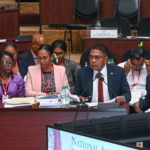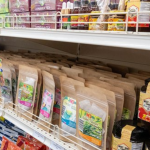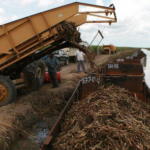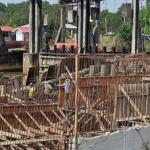Once more the Guyana Agricultural and General Workers Union (GAWU) has misled its membership into activities that only further deplete the production and productivity of the sugar industry, but importantly denying workers and their families of a normal livelihood. The continued weekly work stoppages result in reduced pay, as well as loss of the normal weekly incentives.
The corporation has noted the continued negative stance taken by GAWU with the union’s president contending that the corporation is issuing threats rather than sitting down with them to discuss issues. It is quite inconceivable that the corporation can or would employ any kind of threat to its employees. Its approach has been merely one of keeping its employees, with whom it has a primary relationship, up-to-date about developments in the industry, particularly in terms of their union leaders’ negative influence on theirs and their families’ livelihood.
The union officials were seen driving the workers to protest across the industry. Workers of Albion and Blairmont partially supported the strike, which was reinforced by the union’s central officials visiting those two locations on Monday, February 29, 2016 and insisting that the workers support the union’s central call to protest. There is verifiable evidence of GAWU’s executive threatening their own field representatives who have been reluctant to comply with directions to call workers out on strike.
The corporation on March 1, 2016 engaged the union leadership team from both central and local which included the respective field officer, branch chairman and secretary of all estates. The union was reminded of the established protocols that must be adhered to in regards to the function of both the management and union officers in a continued effort to sustain the existing relationship.
The corporation reiterated to the union’s leadership and delegation the dire financial position it is facing. However, that information seems to be falling on deaf ears. In 2015, the corporation generated G$18.4 Billion as total revenue, whilst its employment cost was G$21.6Billion which is 17% above that of revenue. It was also reiterated to the union’s delegationthat until a road map is developed, there can be no framework to engage in negotiation on wages and salaries, and API (Annual Production Incentive) is up for acceptance by the union or the parties moving to the next level in keeping with the extant agreement, Arbitration.
The corporation at no time issued any threats to the union but the real threat is that of GAWU, with its Tuesday protest action which is hampering the production drive and at the same time leading to additional costs being borne by the corporation. This can only result in the corporation sinking into a worse financial position than the one it is at present in.
The corporation wishes to make it abundantly clear that there will be no further meetings/dialogue with the union whilst the one -day per week protest action is maintained.
In addition, if the one-day per week stoppage is found to be aggravating the financial position of the corporation, the crop will be stopped and will not resume until an assurance is given by the union that this stoppage will cease.
With the best will in the world even other colleague unions would uphold the right of the employer to relate directly with its employees. If in fact, if there is any threat perceived by GAWU it is to its waning influence on the workers, who are increasingly standing up to be counted on their own behalf.





